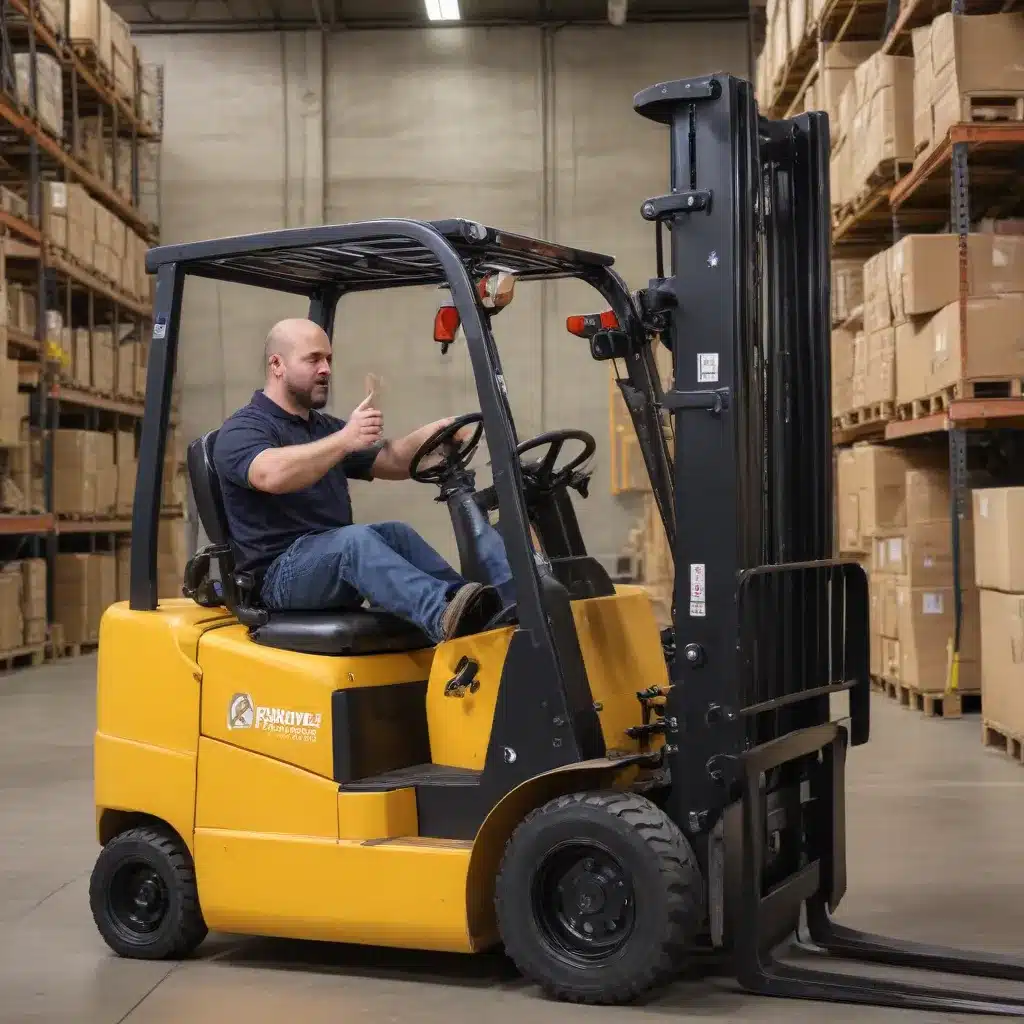
The Imperative of Knowledge Transfer in the Forklift Industry
In today’s rapidly evolving forklift and warehouse operations landscape, the ability to effectively transfer knowledge and skills has become increasingly vital for companies seeking to stay ahead of the curve. As the industry continues to adopt new technologies, enhance safety protocols, and adapt to changing customer demands, investing in forklift operator coaching and mentoring programs has emerged as a strategic imperative.
Forklift operation is a specialized skill that requires a combination of technical expertise, situational awareness, and decision-making acumen. Seasoned forklift operators possess a wealth of tacit knowledge, honed through years of hands-on experience navigating complex warehouse environments, maneuvering heavy machinery, and responding to dynamic operational challenges. Effectively transferring this knowledge to new and aspiring forklift operators is crucial for maintaining safety, efficiency, and productivity within an organization.
Forklift Operator Coaching: Bridging the Skills Gap
One of the primary benefits of forklift operator coaching and mentoring programs is their ability to bridge the skills gap between experienced and novice operators. By pairing seasoned forklift professionals with their less experienced counterparts, organizations can facilitate the sharing of best practices, troubleshooting techniques, and innovative problem-solving strategies.
The Manufacturers Association of Central New York (MACNY) has long been at the forefront of providing comprehensive training and development support to its members, including forklift safety and operation. MACNY’s portfolio of seasoned trainers, such as David Freund and Cindy Oehmigen, offer a wide range of expertise in areas like leadership development, lean manufacturing, and supply chain management – all of which are directly applicable to forklift operations and warehouse optimization.
Through structured coaching programs, these industry veterans can impart their knowledge and insights to new forklift operators, guiding them through the nuances of equipment handling, load management, and warehouse navigation. By fostering a collaborative learning environment, organizations can ensure that critical operational knowledge is passed down, empowering the next generation of forklift professionals to excel.
Mentorship: Cultivating Future Leaders
In addition to bridging skills gaps, forklift operator coaching and mentoring programs play a pivotal role in cultivating future industry leaders. By pairing aspiring forklift operators with seasoned mentors, organizations can facilitate the development of leadership skills, strategic thinking, and decision-making capabilities.
As highlighted in the case of Reece Woody’s journey at Fayetteville Technical Community College (FTCC), the guidance and support of dedicated coaches can be transformative. Woody, a standout baseball player, credited the FTCC coaching staff’s “energy and coaching style” as instrumental in his remarkable growth and achievement of a Division I scholarship.
Similarly, forklift operator mentorship programs can empower individuals to develop the soft skills and leadership qualities necessary to excel in the industry. Seasoned mentors can provide invaluable advice on navigating workplace dynamics, fostering teamwork, and making critical decisions that impact operational efficiency and safety. By nurturing the next generation of forklift leaders, organizations can ensure the long-term viability and continuous improvement of their forklift operations.
Leveraging Technology for Enhanced Knowledge Transfer
As the forklift industry embraces the era of Industry 4.0, innovative technologies have emerged as powerful enablers of knowledge transfer and skills development. Augmented reality (AR), virtual reality (VR), and internet of things (IoT) solutions are transforming the way forklift operators acquire and apply their knowledge.
AR and VR-based training simulations, for instance, can provide immersive, hands-on experiences for new forklift operators, allowing them to practice complex maneuvers and navigate challenging warehouse scenarios in a safe, virtual environment. These technologies not only enhance skill development but also facilitate the transfer of tacit knowledge from experienced operators to their less experienced counterparts.
Moreover, IoT-powered forklift monitoring systems can generate real-time operational data, which can then be analyzed to identify training needs, optimize maintenance schedules, and inform the development of personalized coaching programs. By leveraging these technological advancements, forklift operators and organizations can accelerate the knowledge transfer process, ensuring that critical skills and insights are effectively shared and applied in the workplace.
Cultivating a Culture of Continuous Improvement
Successful forklift operator coaching and mentoring programs go beyond simply imparting technical skills; they foster a culture of continuous improvement, where knowledge sharing and leadership development are deeply ingrained within the organization.
Nsflow’s digital workflow and remote support modules provide a prime example of how technology can enable seamless knowledge transfer across geographical boundaries. By connecting forklift operators with expert mentors regardless of location, these tools facilitate remote coaching and collaboration, ensuring that best practices and innovative solutions are disseminated throughout the organization.
Additionally, the integration of learning management systems (LMS) and data analytics can help organizations track the progress of their forklift operator training programs, identify areas for improvement, and continuously refine their coaching strategies. This data-driven approach not only enhances the effectiveness of knowledge transfer but also supports the development of a culture that values continuous learning and adaptation.
Conclusion: Embracing the Future of Forklift Operations
In the dynamic forklift and warehousing industry, the ability to effectively transfer knowledge and foster leadership development is no longer a mere competitive advantage – it has become a crucial strategic imperative. By investing in comprehensive forklift operator coaching and mentoring programs, organizations can bridge skills gaps, cultivate future leaders, and harness the power of emerging technologies to drive continuous improvement and operational excellence.
As the forklift industry continues to evolve, organizations that prioritize knowledge transfer and leadership development will be well-positioned to navigate the challenges of the future, setting the stage for sustained success and industry leadership. By embracing a culture of continuous learning and innovation, forklift operators and organizations can collectively shape the future of this vital industry.

